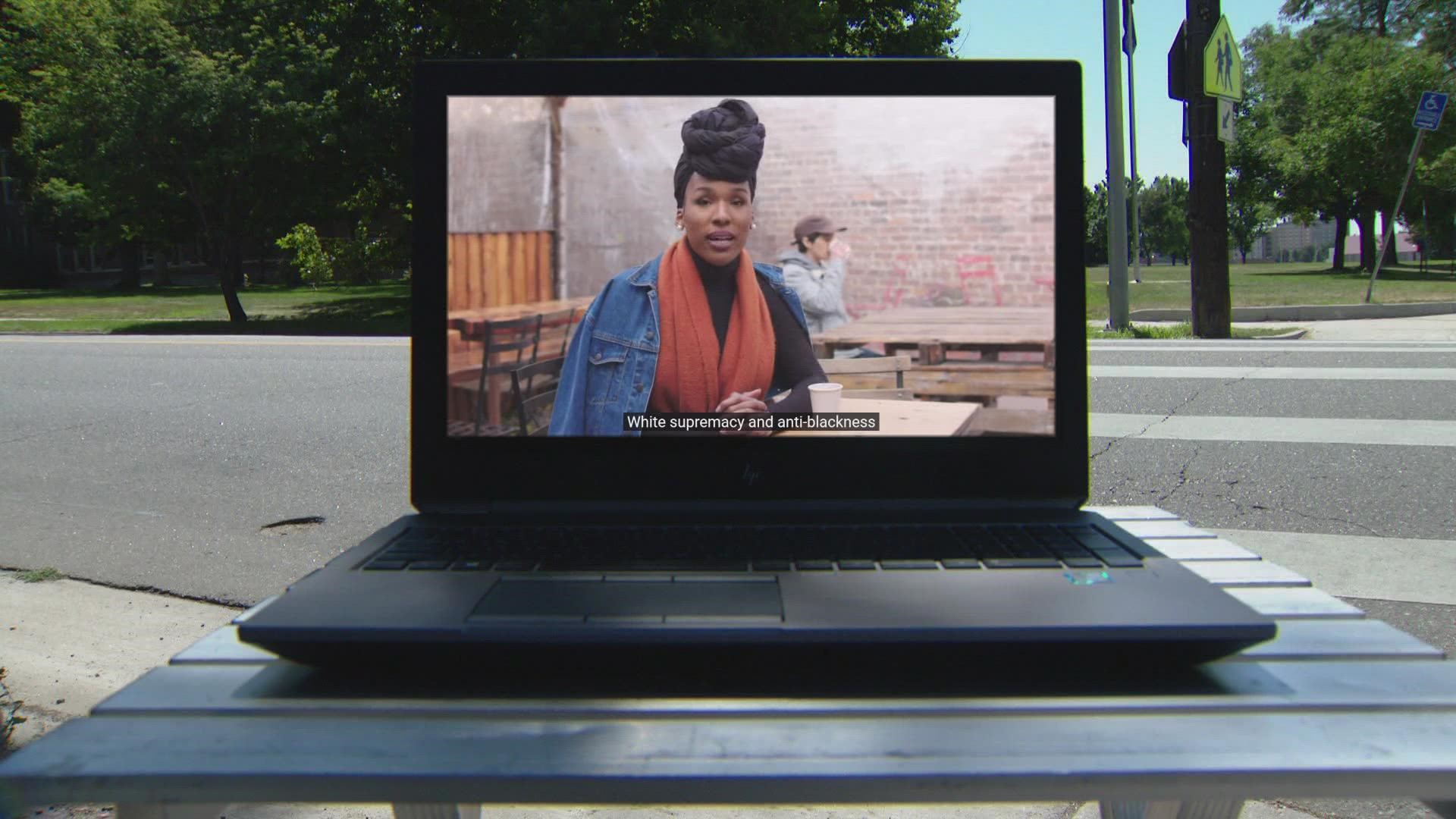DENVER — Students at Denver South High School were shown a video Tuesday on how to respond in case of a racist attack, which included an instruction not to call police — drawing the ire of the city's police foundation.
The nearly four-minute video, titled "Don't be a Bystander: 6 Tips for Responding to Racist Attacks," tells students to engage in conversation with victims, document the attack and "avoid the police."
"Armed police presence often escalates rather than reduces the risk of violence in a situation," the video, which was not produced by the school or district, said. "Because police have been trained to see people of color, gender non-conforming folks and Muslims as criminals, they often treat victims as perpetrators of violence."
"So if the victim hasn't asked you to call police, do not, I repeat, do not call the police," the video's host instructs.
In a statement, Denver's Police Foundation said it commends the efforts of administrators to educate students on how to respond to racist attacks at schools, but said "it is reprehensible of them to include a tip that specifically states not to contact police."
The foundation said it could delay incident reporting, put students in situations they are untrained to handle and discourage cooperation of the victim.
"The message in this type of video continues to manipulate the narrative of law enforcement's relationship with the community," the statement said.
It called the characterization of police bias a "blatant misrepresentation" of Denver Police Department training.
In a statement, a Denver Public Schools spokesperson said the video "was not fully vetted prior to its viewing" and included narratives "we do not subscribe to in DPS."
"We have connected directly with the leadership of [the Denver Police Department] about this matter and look forward to our continued work with them," the district's statement said.
Denver South High School Principal Rachel Goss said in a statement that the video's intention was to empower students who may witness a racist attack, "not to have any sort of negative impact on the longstanding relationship between Denver Public Schools and the Denver Police Department."
"As principal of Denver South High School I remain committed to working with and continue to strengthen this partnership between our school and members of law enforcement," Goss said.
"I understand where the video is coming from, but I think if something is a crime, it needs to be reported," said Darlene Sampson, an equity analyst at the Western Educational Equity Assistance Center -- a federally-funded program that helps school districts implement policies and curriculum that improve equity.
Sampson reviewed the video on behalf of 9NEWS.
"The video itself cannot be used alone," she said. "There has to be a lot of education around it."
Sampson said the video is ineffective unless students have more background and training on racism, anti-racist practices and proper bystander intervention techniques.
She said she doesn't think the video's instruction not to call police should apply in all incidents.
"Hate crimes are against the law. So we don’t want to make a blanket statement. We have to look at each situation individually," she said.
She understands why the video includes mention of the biases studies show police officers may hold when they approach certain situations, but she said "there are times when a hate crime must involve the police."
"When we are addressing hate and bias in schools, it’s everyone that has to be engaged, from the community to the parents. You just cannot do it in isolation," she said.
SUGGESTED VIDEOS: Education stories from 9NEWS

